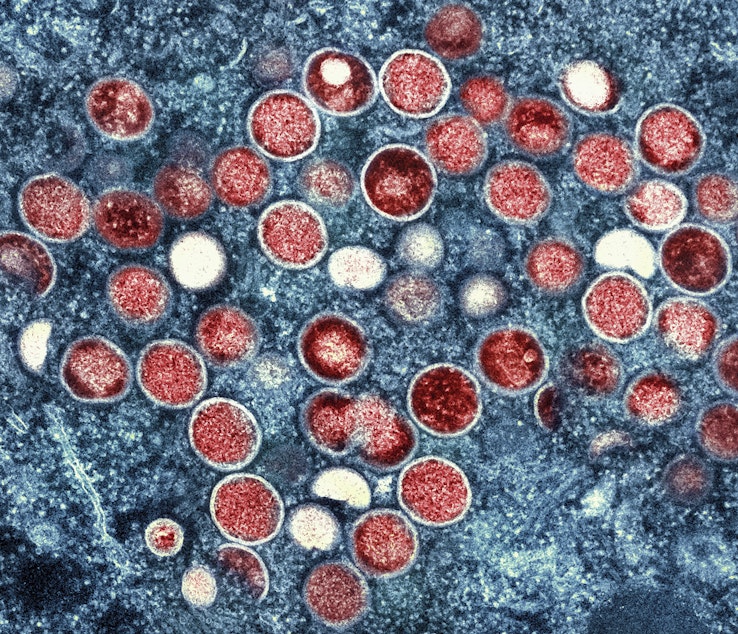Monkeypox outbreak spreads in WA

The risk of the monkeypox virus, or MPV, remains low for the general public in Washington state, according to health officials.
But the outbreak continues.
There are now 392 cases in Washington, according to the state Department of Health, including infections in one infant and a teenager.
There have been 12 hospitalizations in the state. No deaths have occurred in Washington.
To date, the LGBTQ+ community has seen disproportionate impacts from the virus. But officials stress anyone, anywhere can get infected.
"We must continue to remember this is a contact-based virus. It is not limited to any community,” said Dr. Umair Shah, state secretary of health.
MPV spreads through close, prolonged contact with an infected person's skin or body fluids, or contact with shared objects like clothes or bedding.
Sponsored
"Viruses do not have a pre-determined plan to impact one community over another,” said Manny Santiago, executive director of the Washington State LGBTQ Commission. “Both behaviors and the social context in which a communicable disease is spread have much to do with the impact that it's going to have on different communities."
Health officials say everyone should pay attention to any new rashes on their skin, cover the rash to limit contact with others, and see a health-care provider.
Vaccines are available but the supply is very limited, as is eligibility.




